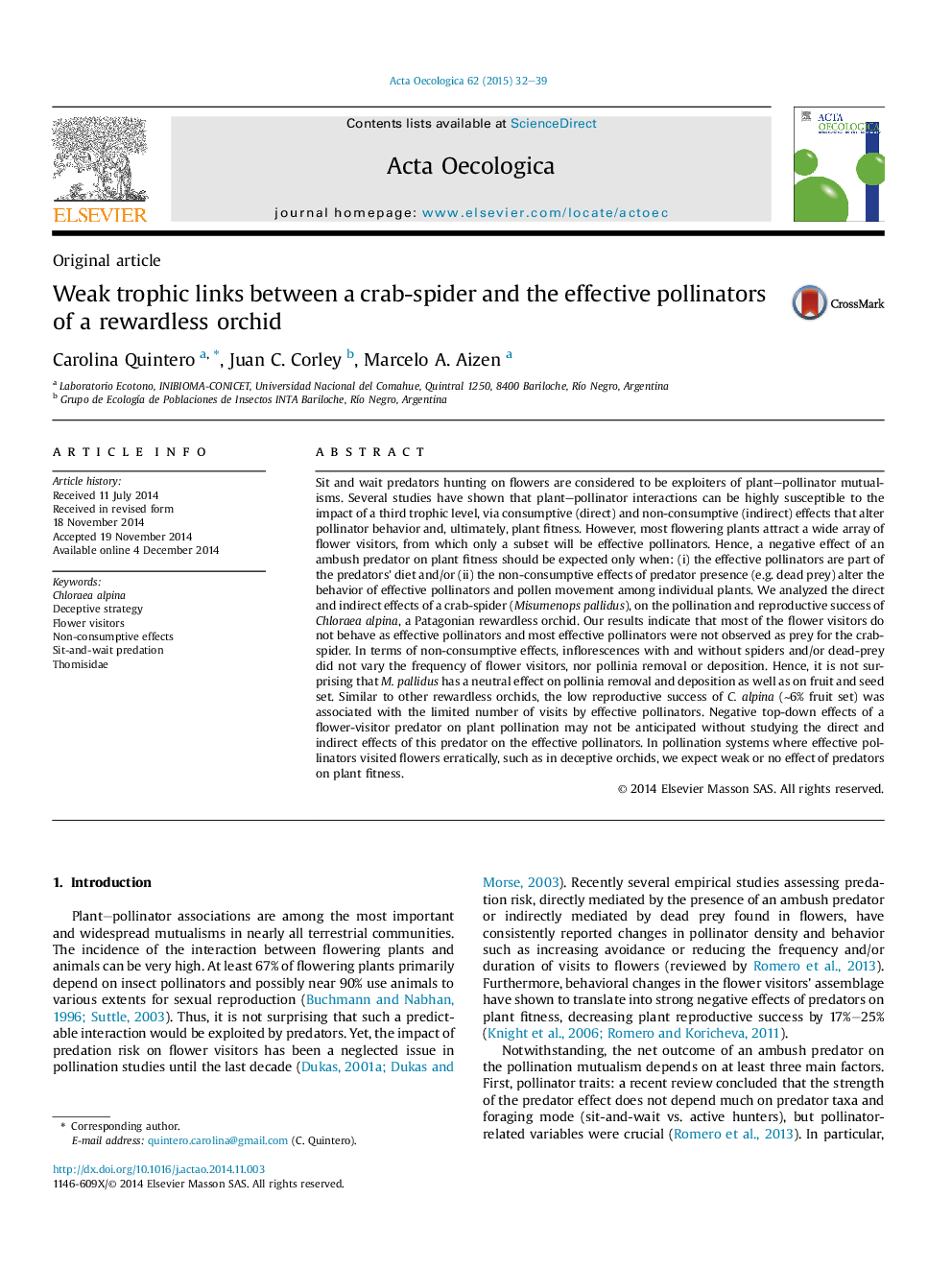| کد مقاله | کد نشریه | سال انتشار | مقاله انگلیسی | نسخه تمام متن |
|---|---|---|---|---|
| 4380722 | 1617709 | 2015 | 8 صفحه PDF | دانلود رایگان |
• Pollination mutualisms can be highly susceptible to the impact of a predator.
• Yet, we did not observe an effect of a crab-spider on pollinator behavior.
• Most flower visitors were not pollinators and these were not prey for the spider.
• Thus, reproductive success (6%) of this rewardless orchid was no altered by spiders.
• Whenever pollinators visit flowers erratically we expect weak top-down effects.
Sit and wait predators hunting on flowers are considered to be exploiters of plant–pollinator mutualisms. Several studies have shown that plant–pollinator interactions can be highly susceptible to the impact of a third trophic level, via consumptive (direct) and non-consumptive (indirect) effects that alter pollinator behavior and, ultimately, plant fitness. However, most flowering plants attract a wide array of flower visitors, from which only a subset will be effective pollinators. Hence, a negative effect of an ambush predator on plant fitness should be expected only when: (i) the effective pollinators are part of the predators' diet and/or (ii) the non-consumptive effects of predator presence (e.g. dead prey) alter the behavior of effective pollinators and pollen movement among individual plants. We analyzed the direct and indirect effects of a crab-spider (Misumenops pallidus), on the pollination and reproductive success of Chloraea alpina, a Patagonian rewardless orchid. Our results indicate that most of the flower visitors do not behave as effective pollinators and most effective pollinators were not observed as prey for the crab-spider. In terms of non-consumptive effects, inflorescences with and without spiders and/or dead-prey did not vary the frequency of flower visitors, nor pollinia removal or deposition. Hence, it is not surprising that M. pallidus has a neutral effect on pollinia removal and deposition as well as on fruit and seed set. Similar to other rewardless orchids, the low reproductive success of C. alpina (∼6% fruit set) was associated with the limited number of visits by effective pollinators. Negative top-down effects of a flower-visitor predator on plant pollination may not be anticipated without studying the direct and indirect effects of this predator on the effective pollinators. In pollination systems where effective pollinators visited flowers erratically, such as in deceptive orchids, we expect weak or no effect of predators on plant fitness.
Figure optionsDownload as PowerPoint slide
Journal: Acta Oecologica - Volume 62, January 2015, Pages 32–39
